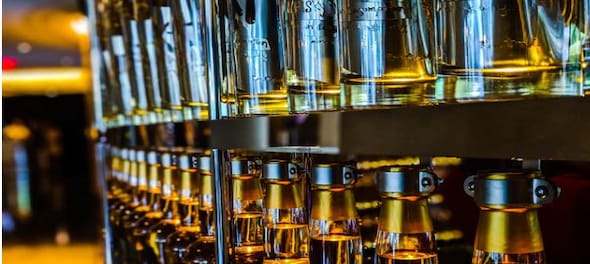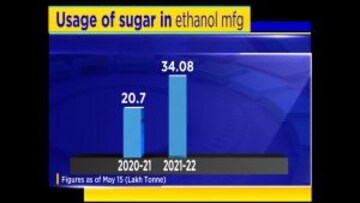
Union Minister for Road Transport and Highways Nitin Gadkari has been emphasising the need to switch from hydrocarbon fuels to ethanol-blended fuels, highlighting how the government is making an effort to introduce ethanol in construction and agriculture equipment.
"Alternative fuel is the future," news agency PTI had quoted Gadkari as saying in the past.
On Sunday, August 28, he reiterated the same at the 61st convention of automakers body Society of Indian Automobile Manufacturers (SIAM). Speaking at the convention, the Union minister urged automakers to start making flex engines, which could run on fossil fuel or ethanol. At the same time, he said the government would set up ethanol filling stations within six months in the country.
In June, Gadkari had said the government was also trying to introduce ethanol in construction equipment.
A double win
A firm believer in the benefits of using green fuel, Gadkari has pushed for ethanol-powered vehicles, bringing the target for producing ethanol-powered engines first to 2025 from the earlier deadline of 2030, and later advancing it further to 2023. At the same time, the minister had set the target year for blending 20 percent ethanol with fuel, known as E20 fuel, by 2025. At present, India blends 10 percent ethanol with fuel.
 Gadkari argues that this would be a double win for India. While it would bring down India’s dependence on imported fossil fuel, the switch to bio-ethanol would also boost farmers’ income and stimulate growth.
Gadkari argues that this would be a double win for India. While it would bring down India’s dependence on imported fossil fuel, the switch to bio-ethanol would also boost farmers’ income and stimulate growth.
“We spend Rs 15 lakh crore per year for import of petroleum products, hence we need to diversify the agriculture sector towards energy and power sectors," Mint quoted Gadkari as saying at the SIAM convention on Sunday. At present, India imports 85 percent of its crude oil requirements.
The minister highlighted that though the sugar requirement of the company was 280 lakh tonnes this year, India produced over 360 lakh tonnes
“We need to divert production towards ethanol as the ethanol requirement is very high," he said.
Agri land and water problems
Gadkari’s stress on farmers diversifying from growing food to other products is both right and wrong, Mint reported.
Growing sugarcane requires massive amounts of water resources. In Maharashtra, sugarcane makes up for about 4 percent of the state’s cultivable land. However, it consumes 70 percent of the state’s irrigation water.
Hence, while the minister is right in urging Indian farmers to diversify their crops, the stress should be on those that consume less water than on water-guzzlers like sugarcane.
For India to achieve its 20 percent ethanol blended in petrol (E20) target by 2025, more cultivable land will have to be used for ethanol production. According to a report by the Institute for Energy Economics and Financial Analysis (IEEFA), the same land could be better utilised for the generation of renewable energy to further strengthen India's EV adoption programme, Business Standard reported.
Not so good for cars
On the other hand, experts have said ethanol-blended petrol has lower fuel efficiency than ‘pure’ petrol. According to C.V Raman, Chief Technical Officer of Maruti-Suzuki, fuel efficiency of E20 petrol is 5-7 per cent less than 'undoped' petrol. The alcohol content in the mix will also corrode the rubber and plastic parts inside the engine, unless they are customised.



